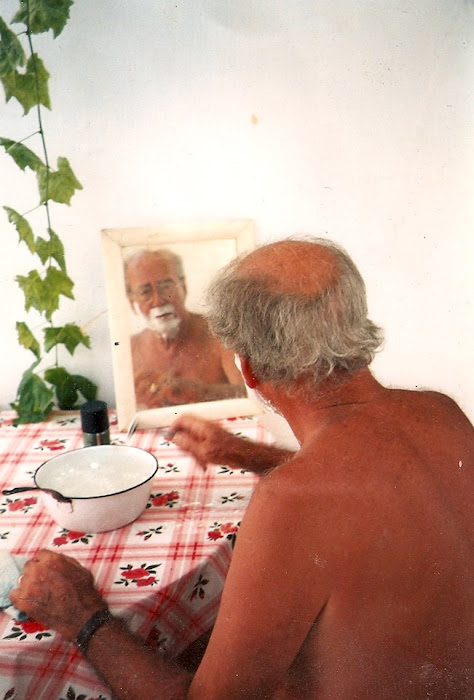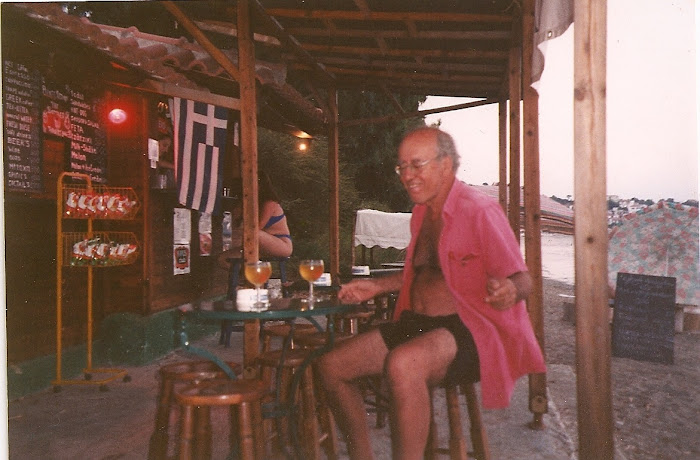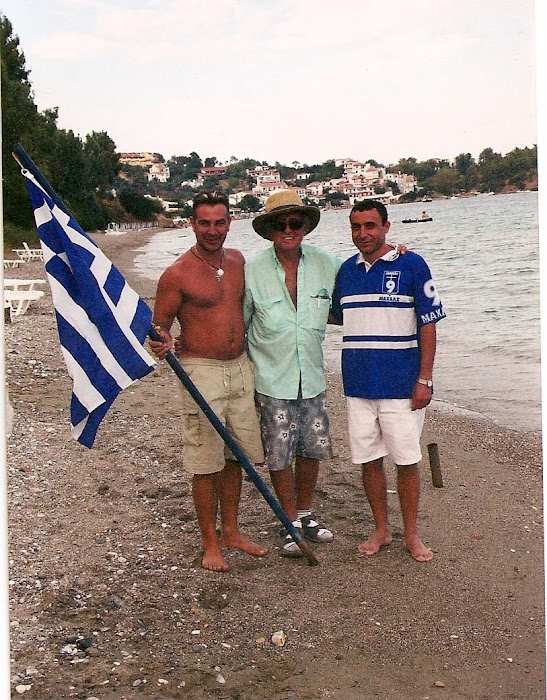
Greece: waist-deep in plastic
With the lowest recycling levels in the EU, and no energy-recovery facilities, Greek landfills are clogged with plastic.
From: Enerpub Energy Publisher
by Thrasy Petropoulos
Consider this fact for a minute. Not a single kilogram of plastic is landfilled in Switzerland. And now look at the other end of the scale. Greece missed its European Union target to recycle a measly 15 percent of its plastic packaging waste by the end of 2006 by some distance.
While the country is doing better than might be imagined in paper and cardboard recycling (above 70 percent), and more than half of industrial steel is reused, Greece props up the table where plastic is concerned.
By combining the quantities of plastic recycled or burned for energy recovery in 2005, the association of plastic manufacturers in Europe, Plastics Europe, has highlighted Greece's position as the most wasteful European country in the management of plastic waste, coming below the likes of Cyprus, Malta, Lithuania and Estonia.
According to figures given to this newspaper by the Ecological Recycling Society in central Athens, the country managed to recycle only 30,000 of the 300,000 tonnes of plastic packaging waste produced in 2006.
Adamantios Skordilis, who heads the alternative waste management department of the environment ministry, acknowledged in a recent interview with this newspaper that Greece is unlikely to meet the stiffer EU target of 22.5 percent plastics recycling by 2011.
Contacted again for the purpose of this article, he insisted that the current figures were expected to rise as household recycling becomes established, but he conceded that the only facility for incinerating refuse-derived fuel (RDF) planned for this country has still not been approved.
RDF, which is collected at landfills, is a compressed mixture of non-recyclable paper (60-70 percent), thin plastics (20-30 percent), cloth and small amounts of wood and other materials. Viewed as a refined form of alternative fuel, it is increasingly used by the likes of cement and power plants and paper mills across Europe.
As seen in the accompanying table, it is the burning of RDF and other solid municipal waste for energy recovery that is, ultimately, the key to the successful management of plastic waste.
A spokesperson for cement producer Heracles, owned by Lafarge, said that the company was intending to invest 6 million euros in constructing the necessary RDF-processing installation in its Mylaki plant, in Evia, and that the use of RDF has been included in the modification of the plant's environmental permit, which is presently in the approval stage.
She confirmed, however, that the plans had met with local opposition and could give no timescale for its completion.
With no outlet for RDF, some 90,000 tonnes of such waste collected at the Ano Liosia landfill in 2004 and 2005 were used to build a supporting wall at the site. This combined amount was included in the environment ministry's reported plastic recycling and reuse figures to the EU for those years, along with the argument that the wall had "filtration" properties. Effectively, however, it did no more than rejoin other landfilled waste.
Timeless problem
Jan-Erik Johansson, a spokesperson for Plastics Europe, makes the recycling culture of other countries sound enviably simplistic.
"It really isn't difficult to get the rate of recycling of plastics up to 20 percent," he said. "You can make considerable improvement by just concentrating on two areas - plastic water and other drinks bottles, which you use a lot of in Greece, and by collecting the plastic film around industrial pallets. Recyclers love this because it amounts to between two and three kilograms of clean plastic per pallet."
He added: "Just by having facilities at supermarkets where people can deposit plastic bottles, Sweden has reached a recycling rate for these bottles of nearly 90 percent."
This appears to give credence to Skordilis' assertion that household recycling will significantly improve Greece's figures.
Contradictory to that argument, however, is the fact that recycling for 2006, when the country's blue-bin programme was supposedly fully operational, apparently shows almost no improvement from the previous year (10 percent against 9.9 percent).
There are, according to Skordilis, two principal problems to overcome.
"There are something like 50 different types of plastic, of which around five are sorted at Greece's recycling plants," he said. "For now, this is done by hand, although efforts are being made to bring in automated sorting methods. The second problem concerns burning RDF. Unfortunately, the initiative in Mylaki is being opposed by locals. The fear is that burning RDF will cause environmental pollution, although this is based on no specific knowledge whatsoever. It is something that will be resolved, but we cannot say when."
Johansson agrees with Skordilis on both counts - namely that the many types of plastic (high- and low-density polyethylene, polypropylene, PVC and so on, often used in combinations within the same packaging) are a problem for recyclers and that the burning of RDF poses no danger to the environment if done correctly. Indeed, he argues, recent measurements from a solid municipal waste-burning plant in Cologne, Germany, showed that the fumes from the furnace were cleaner than the surrounding air.
Filippos Kyrkitsos, the president of the Ecological Recycling Society, told this newspaper that he is not against burning RDF but that a better solution would be to reduce the amount of plastic that arrives at landfills in the first place.
"Before we even consider the environmental impact of RDF, we should concentrate on increasing the number of blue bins across Greece and improving their collection," he said.
Holistic approach
For all the facts and figures, a simple truth is exposed by the comparison of Greece with other European countries. Namely, that elsewhere plastic packaging is, increasingly, not even making its way to landfills.
"In Switzerland, not a single kilo of plastic is landfilled," he says. "And other countries are pretty close to that. They do that by having a holistic perspective to waste management.
When you bear in mind that plastic is nothing more than solidified oil, then recycling or burning for energy recovery is a wonderful way of finishing off the work that has gone into making it."
Not that this ethos should be followed blindly, he argues. Thin plastic supermarket bags, which can be recycled but encourage a wasteful approach by consumers, have been done away within in some countries.
"The alternative in Sweden is the paper bag," Johansson says. "However, from a cradle-to-cradle perspective, the paper bag generates 2½ times more CO2 in its creation and recycling than the thin plastic bag. It is another example of the importance of being informed of the facts."
This is a place to be to be, this is a place to be
This is a place to be to be, this is a place to be

Skopelos and Virgin
-by Skorda
when first you see it
across the water,
rising round and new above the mountain.
Open your mouth and swallow
while youth holds its roundness near,
and you are running fearless in the dark.
Hold it inside, it is still warm
and you will need its light,
there, inside you.
Down the road of time, somewhere
after you’ve aged, traveled,
Explored, discovered.
And the dust around your doorway
has been pounded hard and smooth under your feet.
When you find yourself growing weary and bored,
when your eyes see only ruins,
and your heart is empty.
You may believe, in your exhaustion,
that this is truth, at last.
That the mystery has unraveled,
leaving no wilderness to explore or tame.
All secrets have been shared,
the frontier has dissolved.
Know then, with these thoughts,
you have been swallowed.
The warm belly of the beast
comforts with confining darkness
and lulls with rhythmic sounds
Murmuring to you,
Curl up and sleep,
just go to sleep.
Shake your head,
stretch your legs,
do not sleep now.
Remember what you know.
You swallowed the moon,
you hold it inside you.
Not as a magpie hoarding shiny things,
or wearing the moon for beauty
or bartering the moon for wealth.
You swallowed the moon for this moment.
When you will walk to the water’s edge,
open your mouth, release the moon
and let its light build you a pathway
across the wine dark sea.
©Skorda 2008

note
I do love having these postings on one scrollable page, but alas, there are now too many. I am dividing this blog into pages of 50 posts. Please click on "older posts" (just above Erase Fetish) to see what is no longer on this page. And please sign my guestbook, to your left, just under "Fata Morgana". Thanks!
Thursday, April 10, 2008
Plastic: Not good at all
Labels:
environment
Subscribe to:
Post Comments (Atom)
ERASE FETISH









No comments:
Post a Comment